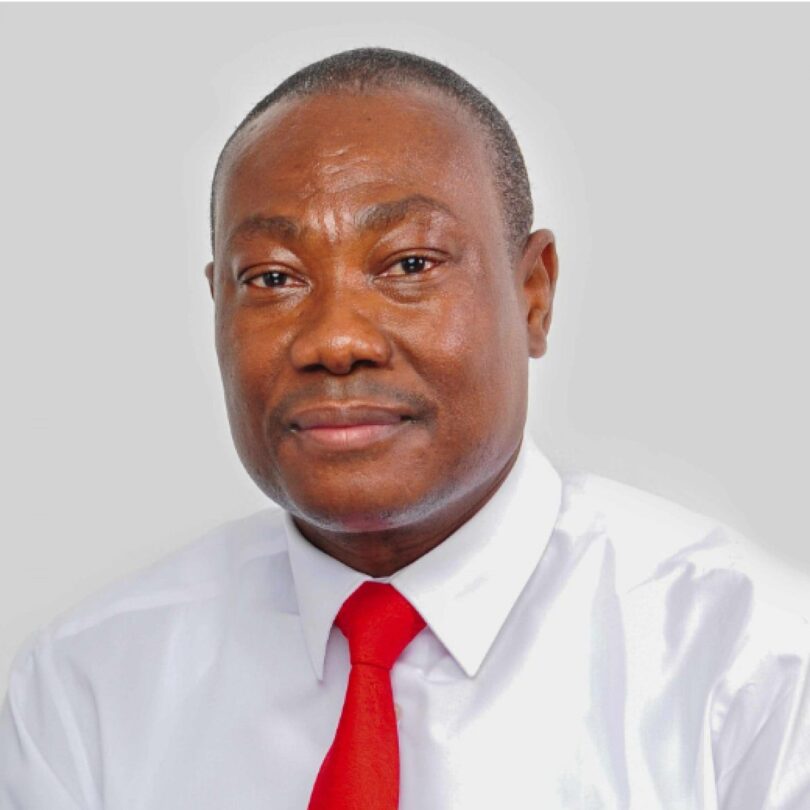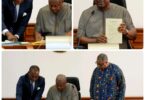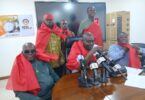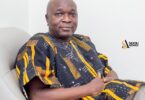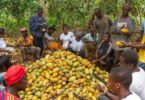Report by: Michael Antwi
Mr. Martin Ayisi, the Chief Executive Officer of the Minerals Commission, has announced that an ongoing review of Ghana’s mining laws aims to introduce a nine-year limit on prospecting licenses to enhance accountability in the sector.
He highlighted that Ghana is one of the few African countries without a limit on the duration of prospecting licenses.
The new measure is designed to encourage companies to actively develop their licenses rather than holding them indefinitely.
“We are the only country in Africa that does not have a limit on the duration of prospective licenses. We have reviewed the law and are likely to restrict it to nine years”.
The rationale behind the prospective license is to ensure that license holders actively work; you use it or lose it,” he stated, emphasizing the need for active participation in the mining industry.
Mr. Ayisi made these remarks during a webinar hosted by the UK-Ghana Chamber of Commerce (UKGCC) and WTS Nobisfields on the topic of “Responsible Mining—Compliance, Licensing, and Sustainability.”
Role of the Minerals Commission
The Minerals Commission, established 40 years ago under the Minerals Commission Act 450 of 1993 and PNDC Law 154, serves as the primary regulatory body overseeing Ghana’s mineral resources.
The Commission plays a crucial role in regulating and managing the utilization of these resources.
It is responsible for receiving and processing applications, authorizations, and permits for mineral exploration and extraction, subsequently recommending them to the Minister for approval.
Additionally, the Commission formulates and recommends policies to the government, considering national priorities, and implements these policies while ensuring compliance through monitoring of mining operations.
Mr. Ayisi clarified that the Commission does not possess the authority to grant mining rights; that authority solely lies with the Ministry for Lands and Natural Resources, which acts based on the recommendations of the Minerals Commission.
Mining in Ghana: Key Requirements
According to Mr. Ayisi, mining in Ghana requires four key authorizations. The first requires rights to be granted by the Minerals Commission, followed by Parliamentary approval.
The third requirement involves obtaining an environmental permit from the Environmental Protection Authority (EPA) after securing a mining lease. Lastly, an operating permit must be issued by the Minerals Commission.
“Operating without the necessary permits is considered illegal mining,” Mr. Ayisi emphasized.
He cautioned that mining leases are not easily available and may be canceled, withdrawn, or suspended if they are not actively utilized.
He advised companies interested in entering the sector to seek collaborations, highlighting a popular partnership approach known as the “farm-in and farm-out arrangement,” where one party provides financial investment while the other manages operations.
Additionally, grants are available for individuals interested in the mining sector.
Mr. Ayisi also mentioned the Commission’s commitment to prioritizing local content by awarding mining-related services, such as security, fuel supply, open-pit operations, and medical services, to Ghanaian companies.
However, if local capacity is lacking, the sector may be opened to external providers.
Addressing Illegal Mining
Regarding the ongoing issue of illegal mining, commonly referred to as ‘galamsey’ in Ghana, Mr. Ayisi reiterated that the Minerals Commission does not issue licenses for operations in water bodies.
“If you see anyone mining in a water body, know that they are operating illegally because we do not grant permits for such activities,” he remarked.
He underscored the government’s responsibility to deploy appropriate security measures to combat illegal mining and anticipated that action would be taken soon.
Additionally, he urged people to report licensed miners who are perceived to be engaging in illegal activities to the Minerals Commission for accountability.
Mr. Ayisi assured the public that “the Minerals Commission is committed to ensuring that Ghana remains a leader in responsible mining practices across the continent.”
The webinar, moderated by Theophilus Tawiah, Managing Partner at WTS Nobisfields and lecturer at UPSA Law School, covered a wide range of topics related to Ghana’s mining regulations and the Commission’s efforts to promote sustainable mining practices.
About the UKGCC
The UK-Ghana Chamber of Commerce (UKGCC) was established in 2016 with the support of the United Kingdom’s Department for Business and Trade (DBT) to promote trade between the United Kingdom and Ghana.
It is the leading private sector organization supporting trade and commerce for UK and Ghanaian businesses.
Source: www.thenewindependentonline.com


